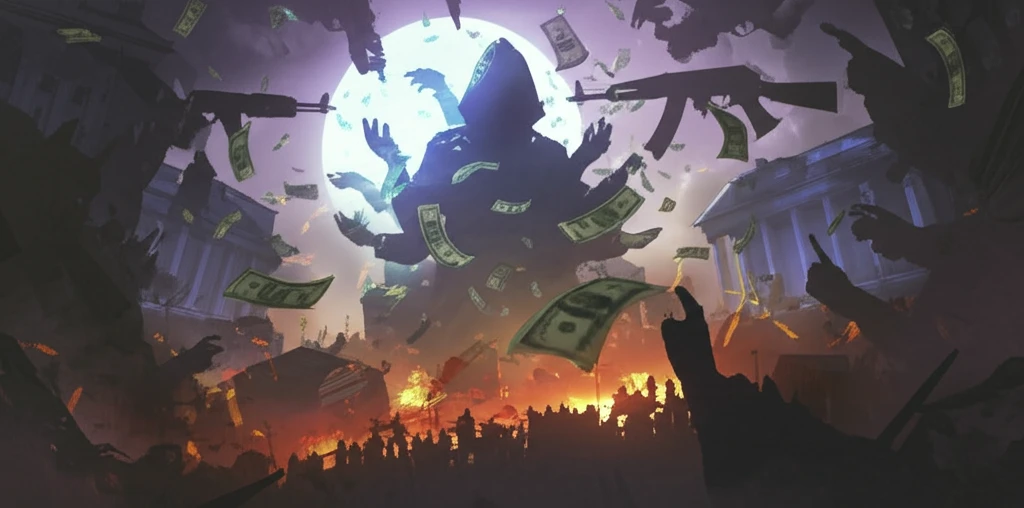
Unveiling the Shadow World: How the Global Arms Trade Impacts Us All
"A deep dive into Andrew Feinstein's exposé on the global arms trade, its corruption, and its far-reaching consequences on social and economic development."
Have you ever wondered where a significant portion of the world’s corruption and waste originates? Look no further than the global arms trade. Billions of dollars, which could be used for social and economic development projects, are instead funneled into this shadowy industry. The scale of corruption is staggering. Andrew Feinstein's "The Shadow World: Inside the Global Arms Trade," offers a comprehensive look into this disturbing reality.
Feinstein’s work, praised by the Washington Post as “the most complete account ever written,” unveils the intricate web of corruption and greed that drives the arms trade. Through a series of compelling case studies, the book illustrates how this industry enriches a few at the expense of many, diverting resources from essential services and fueling conflict around the globe.
This article will explore the key themes and revelations from Feinstein's exposé, examining the industry's structure, its impact on global affairs, and the urgent need for greater transparency and accountability. Whether you are a seasoned policy expert or simply curious about the forces shaping our world, understanding the global arms trade is crucial for informed citizenship.
Case Studies in Corruption: A Closer Look at the Arms Trade's Dark Side

Feinstein's book uses a case-study approach, making the complex world of the arms trade accessible to a broad audience. These studies provide concrete examples of the corruption and unethical practices that permeate the industry. Let's examine some key instances highlighted in "The Shadow World."
- Lack of International Laws: The absence of robust international laws governing the arms trade allows unscrupulous actors to operate with impunity.
- Wasteful Spending: Governments often prioritize military spending over social programs, even when there is no clear justification for such expenditures.
- Military Greed and Competition: The pursuit of profit and dominance drives the arms race, leading to the proliferation of weapons and the escalation of conflicts.
- Government and Industry Corruption: The revolving door between government and the defense industry creates opportunities for corruption and undue influence.
The Price of Security: Balancing Defense Spending with Social Needs
Feinstein's work raises critical questions about the allocation of resources and the true cost of security. The author argues that excessive military spending often comes at the expense of domestic programs and social welfare. The United States faces mounting calls for cutbacks in social spending while simultaneously engaging in military interventions across the globe. This highlights a fundamental tension between national security priorities and the needs of its citizens. As President Eisenhower warned, the military-industrial complex poses a threat to democratic values and sound economic policy. Understanding the shadow world of the global arms trade is the first step towards holding those in power accountable and building a more just and peaceful world.
